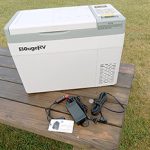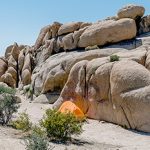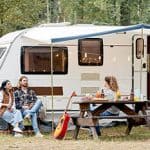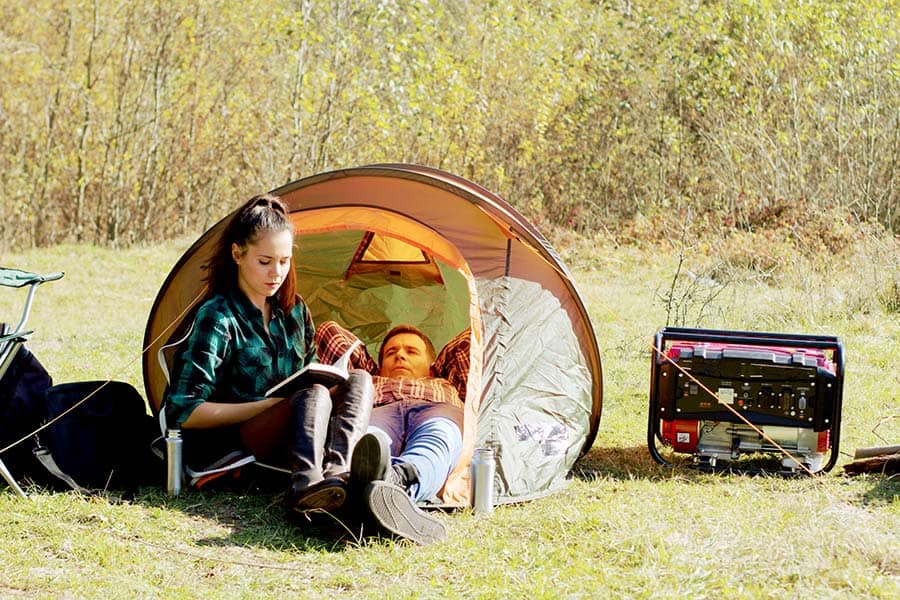
Those who go camping do so for relaxation and the quiet that comes with the outdoors. Generators are known to be quite noisy, so questioning whether or not they are allowed can be something many campers wonder about.
Are generators allowed on campgrounds? Some campgrounds do not allow generators at all because they can be quite loud. Other campgrounds may allow generators in designated areas or during a specific time of day. The National Park Service allows some campers to use generators. Still, they may not exceed a noise level of 60 decibels at 50 feet.
If you’re not wondering for yourself if you can have a generator, you may be wanting to know what level of noise to expect from other people’s generators when you arrive at your campsite. Continue reading to learn when and where generators are allowed and some specific generators to consider.
Is My Generator Allowed on a Campground?
Whether a campground allows generators varies on its policy. Many have generator free areas to let campers who would like to be away from the noise to be secluded.
As generators can often be loud, there are specific rules for those campgrounds that do allow them. Here are typical rules to expect:
- Quiet Hours. These are hours that generators, loud conversations, and other annoying noises are not allowed. They usually fall between 9 pm and 8 am, but it does vary based on the campground. Upon arrival, make sure to find out what the campground quiet hours are.
- Under 60 decibels. Many campgrounds require noises at all times, including generators, to be under 60 decibels. This requirement ensures no one is too disturbed by the loud sound of a generator.
- Generator-only hours. Some campgrounds have restricted hours when you are allowed to use a generator. These are separate rules from the quiet hours, and your generator use must follow both sets of guidelines. Usually, there will be a time in the morning, afternoon, and evening: such as from 8-10 am, 12-2 pm, and 5-7 pm.
- Generator-specific sites. Usually, people with generators will have an RV or something similar. So, you will be at one of the larger sites. Generators generally are kept away from tent-only sites, as those campers tend to desire quieter camping.
Why Do You Need a Generator to Camp?
Generators are often necessary if someone does not have hook-up access to their camper or RV. Tent campers generally do not need a generator unless they want to use an electric stove or another type of device that needs some electricity.
Some people may also use a generator to watch television or listen to music as well. If you’re camping with the bare minimum, you can get away with going without a generator. While not everyone needs a generator while camping, many prefer to have one just in case they might need one to run any equipment.
We have a post that discusses if camper vans need powered sites, you can read all about it here.
If, while camping, you end up with bad weather and cannot make a fire to cook food, a portable generator might come in handy to cook some meals with and also to get a small light powered on. While this isn’t entirely necessary, it is often a relief to have in case of an emergency.
The size of the generator you are going need depends on the amount of wattage you need. For example, a refrigerator is generally around 600 watts to keep powered up. If you only have a fridge and some lights, then you can get a generator that is relatively low wattage, which is also going to be less expensive to purchase.
Portable generators are generally pretty inexpensive, so bringing a smaller one along is not going to stretch your budget too far. Plus, the convenience is sometimes worth the cost, especially if you have a lot of air mattresses to inflate.
Inflating air mattresses is one of the jobs that you’d rather not have to do, so you might find this post on how to inflate an air mattress when camping very useful.
Generators also give off carbon monoxide, which is dangerous if the levels get too high in an enclosed space. Many generators come with a sensor to shut it off when the level gets too high.
What Kinds of Generators Can Be Used?
Most people who take a generator camping are going to want to do so as inexpensively as possible. There are a few different brands that are not only low cost, but quiet as well. Not only that, but they are smaller and easy to travel with when you do go on a camping trip with family or friends.
Other Posts of Interest
- 11 Perfect Places To Camp in White Mountain National Forest
- How To Keep Cool Sleeping In A Van: A Very Practical Guide
- Secrets Of Selecting An Inverter For Your Van Build
Honda EU1000i Inverter Generator Super Quiet 1000 Watts
The Honda EU1000i inverter generator has several benefits that are going to be great for a quiet camping area. While Honda has several different generators that will fit every need, this one is going to be helpful if you are looking for something that is going to keep the noise down.
- Only 60 decibels of noise
- Economy setting, putting noise level at only 50 decibels
- Only 1,000 watts
- Only about 30 pounds
- Many different options for maintenance due to popular brand
Cummins Onan P2500i Inverter Portable Generator
The Cummins Onan P2500i inverter portable generator reported as being one of the quietest generators on the market, which makes it extremely popular for camping. Not only is it quiet, but it has plenty of power to fuel your camper and other appliances, such as a stove for a hot meal and the lights in your camper.
- As low as 52 dBA
- Built-in handle for easy carrying
- Two 5V USB ports for charging sensitive electronics
- 3-Year warranty
Champion 3400-Watt Dual Fuel RV Ready Portable Inverter Generator with Electric Start
While the Champion 3400-Watt dual fuel RV ready portable inverter generator is another extremely quiet generator, it has many other benefits as well. This generator is known for being stackable, so if you happen to need more than one, you won’t need any more space. They stack easily and out of the way, so there is never a crowding issue.
- 53 decibels of noise at 20 feet away
- Stackable generator
- Excellent customer service
- Two-year warranty
These generators are going to be great for someone who prefers tent camping or uses a small camper. Larger RVs and toy haulers are going to require much larger generators to provide the power that they need.
Over the years, generators have become lighter, quieter, and easier to operate. Purchasing a generator is a great addition to your camping equipment and will provide you with years of use.
Here are a Some Alternatives to Generators
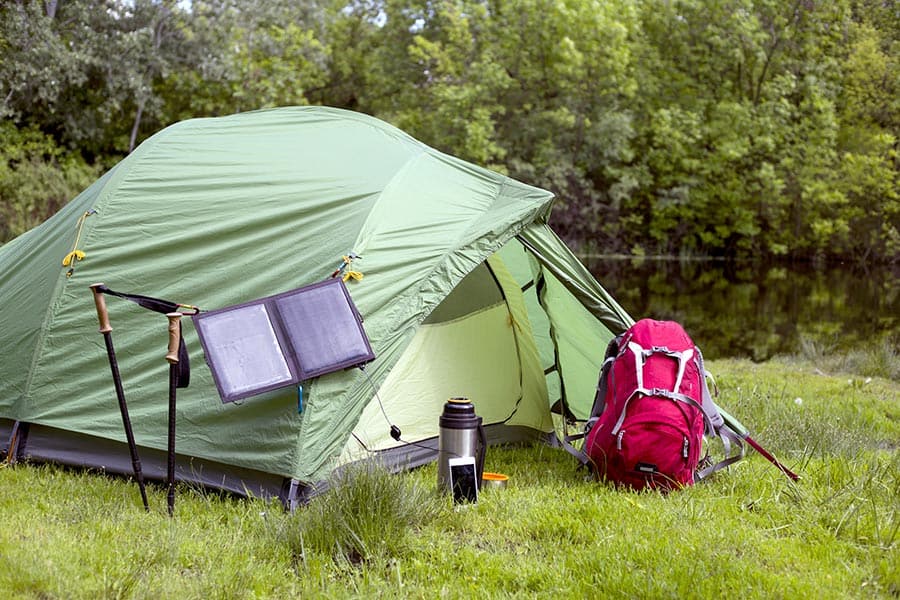
If there are restrictions about bringing generators onto a campsite, there are alternative options. Most people who camp still need access to something that is going to give them light at the very least, so they will need access to something that will provide them with that ability. Here are some ideas to make that work:
- Solar panels, like Rockpals 100W Foldable Solar Panel Charger. This panel charger works with most solar generators. It is water-resistant and is perfect for camping. The panel is foldable and easy to transport.
- Portable power stations, like the Jackery Explorer 240. This portable power station is perfect for taking along when camping. You don’t need any fuel because you can recharge it from a solar panel. It has a 240 watt-hour lithium-ion battery pack, and it is a pure sine wave inverter.
- Take advantage of the fire pit for warmth and cooking
- Battery operated lights or lanterns
Final Thoughts
People who like to camp often do so because they want the relaxation and the serenity of being in nature. It can be a big distraction when people have extremely loud generators running all hours of the day and night. Therefore, to help provide the atmosphere that campers want, campgrounds will have restrictions on times and areas you can use them.
A lot of the appeal to camping is the silence. However, sometimes we need electricity to recharge phones, run laptops, and other devices. When choosing a generator, pick one that is low in decibels. Plus, consider different ways to bring power along.
The best piece of advice to get prepared for your long-awaited weekend of camping is to contact the location where you will be staying to find out exactly what their policy is on generators.



